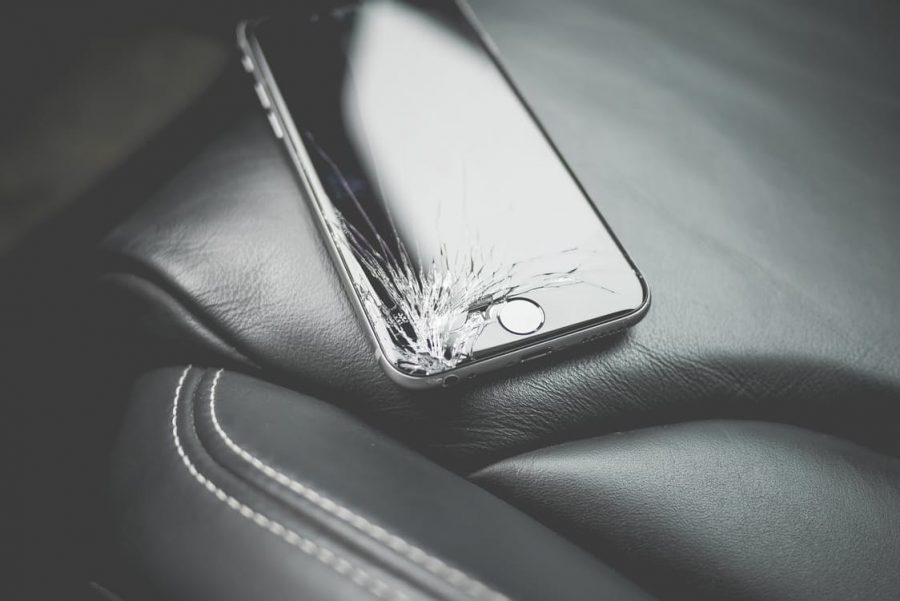Every owner of electronics would benefit from ‘right to repair’ legislation
February 21, 2017
Digital Rights Management (DRM) is a company’s best friend and a consumer’s worst nightmare.
(If you aren’t familiar with DRM (lucky you), you can learn about it here.)
DRM practices are now expanding and making their way into physical products; no longer confined to just the digital world. For example, farmers have been fighting for years against companies like John Deere, who make it illegal under copyright law to tamper with their vehicles even after they have been purchased. Owners of these products are not allowed to service their vehicles themselves, or have anyone but a certified John Deere vender make any repairs to the items. So much for “ownership.”
These practices have fed up enough people that a “right to repair” movement has begun, and started to build up momentum around the country.
In 2012 Massachusetts passed a “Right to Repair” initiative known as “Question 1” with overwhelming support. The law required that vehicle owners and independent repair shops in the state have access to the same repair and diagnostic information that is available to the vehicle manufacturers. The law essentially stopped vehicle manufacturers from forcing customers to take their vehicles back to them for service, and allowing customers to find alternative, cheaper methods of repairing their vehicles.
The “right to repair” movement goes beyond vehicles, however. Nebraska state legislature is currently considering a proposal that focuses on the right to repair electronics in a similar vein to Massachusetts’s vehicle initiative. If passed, the bill would require companies like Apple and Samsung to make parts and information needed to repair their products available to independent repair shops and to regular consumers.
Large companies like Apple have lobbied against “right to repair” bills like this in the past, which makes it likely that they will fight this legislation as well. After all, it would be in the company’s best interest to keep consumers in a position where they cannot fix their products by themselves. Manufacturers can mark up parts and service tremendously when one of their products comes into their store for a repair. That’s why companies like Apple currently make it as difficult as possible to find schematics of their product’s interiors; and it may even be illegal to share such information.
Companies like Apple shouldn’t be required to release schematics that would allow customers to do their own repairs on Apple products; that isn’t their responsibility. However, when someone cuts open a MacBook and draws up his own diagrams of what’s inside, he should be able to share that information without breaking the law to do it.
Louis Rossmann, a popular internet tech-guru and repair shop owner, is one of the biggest proponents of the “right to repair” movement, and has repeatedly expressed the importance of being able to fix your own electronics.
“The reason this is a problem is because we live in a society where it is okay for a manufacturer to sell products at 900 and 1200 and 1500 dollars, and then tell the customer… ‘it’s going to be 750 to 1250 dollars to repair that product,’ even when the problem with the product is a 17 cent resistor.”
-Louis Rossmann in his YouTube video: “Right to repair bill; why you should care and what you need to do.”
Rossmann is right. It isn’t fair for companies to tell consumers that they have no option but to spend outrageous amounts of money for simple fixes on electronics that they own.
Controlling what customers can do with physical products after they have been bought is akin to taking DRM restrictions out of the digital world and into the real one. As if it wasn’t bad enough when it was just your digital media, now companies are trying to keep a grip on their physical products after they’ve been sold as well.
It needs to be clarified once and for all what “ownership” really means, because if these companies get their way, soon it will be unrecognizable to what it once was. If a customer spends money on a product, he or she has the right to fix it without having to spend almost the entire cost again to repair it, or break the law to do it cheaper. Every customer has the right to repair what is theirs in the way that they choose, and that’s why Nebraska’s bill needs to pass. It would be a start toward breaking the chains that manufacturers include with their products.
email: [email protected]
Twitter: @Joel_Hopkins13




